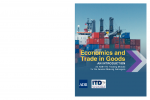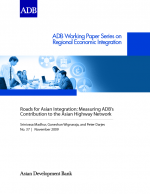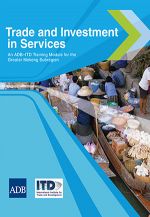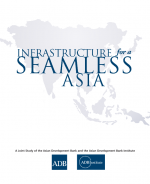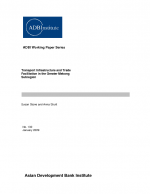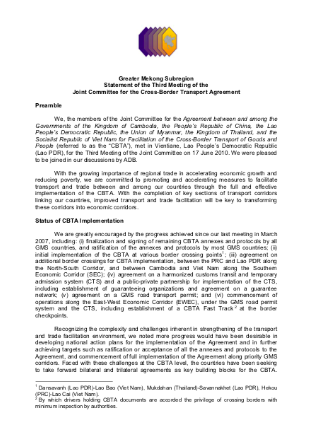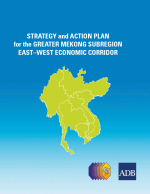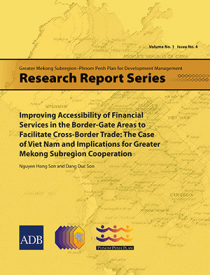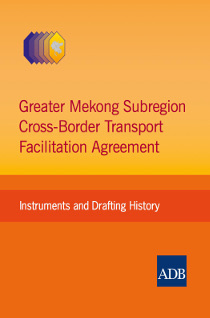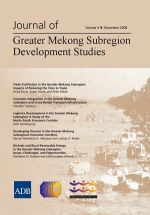
Journal of Greater Mekong Subregion Development Studies - December 2008
In this issue of the Journal of Greater Mekong Subregion Development Studies, we feature five articles that concern some of the more pressing issues of cooperation in the Greater Mekong Subregion (GMS) - trade facilitation and trade logistics, the trade impact of cross-border transport infrastructure, tourism corridor development, and biofuels and rural renewable energy. The diversity of the topics tackled in this volume reflects the multifaceted challenges of regional cooperation.

